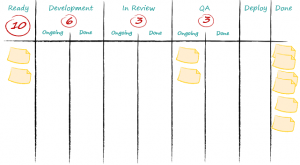
SEO is a top priority for online businesses because, unlike other acquisition channels –– i.e. PPC, display and retargeting –– SEO drives completely free traffic. Well, almost free. Optimizing your site, creating quality content and adhering to best practices takes time, and it’s not always feasible for every business to bring that function in-house.
SEO agencies allow you to get this vital work accomplished without having to worry about onboarding additional employees. But, while agencies are convenient, they come with some inherent risk as well. Do a quick Google search and you’ll come back with more than a few SEO agency horror stories. Choosing the right agency, i.e. the one which does quality work and truly aligns with your company’s vision, is an absolute must –– and not just because of those horror stories. Poor SEO does a lot more than not benefit you –– it can do irreparable damage to your website.
In part one of this series, we’ll look at three key questions to ask prospective agencies to help you narrow down options and find the best fit for your business.
1. What similar work have you done?
While many SEO best practices transcend web verticals, industry-specific knowledge can be the difference between the first and second page of Google SERPs. Optimizing a car dealer’s website, for example, entails an entirely different strategy than an online clothing store. Ecommerce optimization has intricacies and special considerations that agencies should have proven experience in if they’re to be entrusted with the key to your castle.
Within ecommerce, different spaces have their own challenges. If you sell shoes, enlisting the help of an agency with clothing ecommerce experience is recommended because they already know what to look out for. Agencies will gladly take on any work, but it’s important to know that they’ve done something similar to your business. They need to have examples they can show you, and don’t be afraid to call the company and ask for a reference as well.
At the same time, a great agency knows that every client brings unique challenges. Adaptability is just as –– if not more so –– important as relevant experience because it demonstrates their ability to analyze the competitive space and employ the right tactics. While experience in ecommerce should be a must have, domain-specific knowledge isn’t necessarily a make-or-break factor. Just make sure you don’t let them sell you on adaptability when their entire portfolio consists of optometrists in Northwest Kansas.
2. How do you approach link building?
Links are one of the primary foundations of SEO, and great online marketers don’t just wait for other websites to find them: they utilize link building to expedite the process.
The downside? When done improperly, backlinks are one of the easiest ways to incur a Google penalty. Worse, sketchy backlinks are an easy way for the ill-intentioned agency to get quick results, only to leave you by the side of the road when Google swoops in. Your number one priority in choosing an SEO agency is finding a firm that works with your long-term prospects in mind, and links are a classic case of short-term gain, long-term loss. Even if you determine that link building isn’t something you want help with, it’s an effective means to evaluate an agency’s values.
Of course, there are perfectly legitimate ways to build quality links, all revolving around creating content that people want. Link building isn’t always an agency responsibility, but the topic will invariably be broached. Good answers to this question could include:
- Promotions: Reach out to niche websites whenever you have a big sale or offer significant discounts. If you sell shoes, contact webmasters of shoe blogs to see if they’ll tell their readers about your sale.
- Content marketing: If you have –– or plan to create –– informative content, your best bet is to promote it on social media and reach out to industry leaders who can share your great work. Informative content is not product listing content. Blogs, white papers, LinkedIn posts and Medium articles all have something to offer besides the potential to generate sales.
On the subject of content, many agencies are able to produce category page blurbs, blog posts and other texts that target important terms for your business. While you may handle writing internally, it’s also common for agencies to do the creative work for you. Find out more about how the agency will actually get this done.
- Who will actually write the content? Maybe they hire former journalists who can whip up tantalizing, keyword-rich content –– or maybe they outsource to an overseas content farm. These are very important differentiations.
- Can you show me an example of content you’ve written? More important than how it’s done is what it looks like and how it reads. High quality, informative and engaging content earns the most organic backlinks. If you aren’t producing this type of content, you’re wasting both your and your readers’ (i.e. your potential customers’) time.
3. How do you execute SEO in alignment with company goals?
If SEO professionals ruled the world, every title tag would be keyword rich, websites would have comprehensive menus and strong interlinking, and the entire marketing strategy would revolve around flawless SEO. Alas, that is not the case. Like any professional situation, it’s an agency’s job to understand their environment and make suggestions within it.
Agencies who go on and on about moonshot projects that would never get executive sign-off are best avoided. Sure, those ideas might be great in theory, but you can usually tell right of the bat if suggested strategies have a long-shot chance of coming to fruition. Establish objectives and constraints early on to determine how the agency will help you achieve them. These should include:
- Short and long-term goals: Do you want a particular product page to rank well? Need a time-sensitive campaign to take off? Or, do you simply want the best possible SEO performance across your website? Establish project scope early on so that proposed agency initiatives fit in with your needs.
- Technological impediments: Before an agency can suggest any deliverables with confidence, they need to know what you’re working with. From CMS to engineering resources, their success is closely tied to how changes are made on your website.
- Budget: It may sound obvious, but it’s uncomfortably easy to let an agency sell you on their high aspirations –– only to find out that your budget doesn’t match. Let an agency sell you on what they can do within the comfy confines of reality, not a best-case, impracticable solution.
Another important consideration is how a prospective agency factors brand into their work. A relevant term with high search volume may violate your brand playbook, and establishing these restrictions off-the-bat is key to choosing an agency. Branding guidelines may extend to menus, links on page and a number of other website components with SEO impact. A great agency will ask for this before they start, demonstrating their desire for a collaborative, brand conscious effort.
Don’t Underestimate SEO
SEO is most effective when ingrained into your company’s marketing DNA. Relying on it too much up front can produce overly-optimized, off-brand pages, while seeking SEO touch-ups after completing the planning and creative will likely land your website in Google purgatory. Outsourcing your SEO makes this alignment tougher, but far from impossible.
Evaluate an agency with the same general criteria as you would to hire an employee or select a business partner. Look for proper experience, integrity and the desire to do things the right way. Interview each option, get a list of reference, call those references and be sure that your objectives and what the agency can accomplish (both their verbal commitment as well as their historic accomplishments) are aligned.
Digital & Social Articles on Business 2 Community(48)







